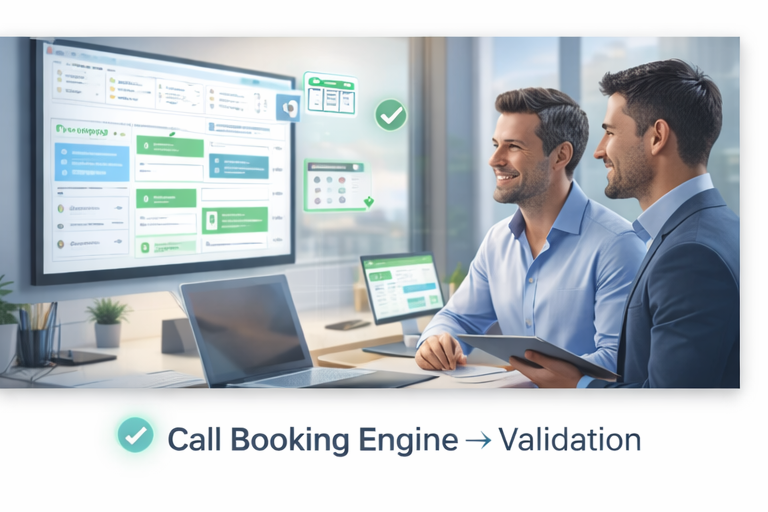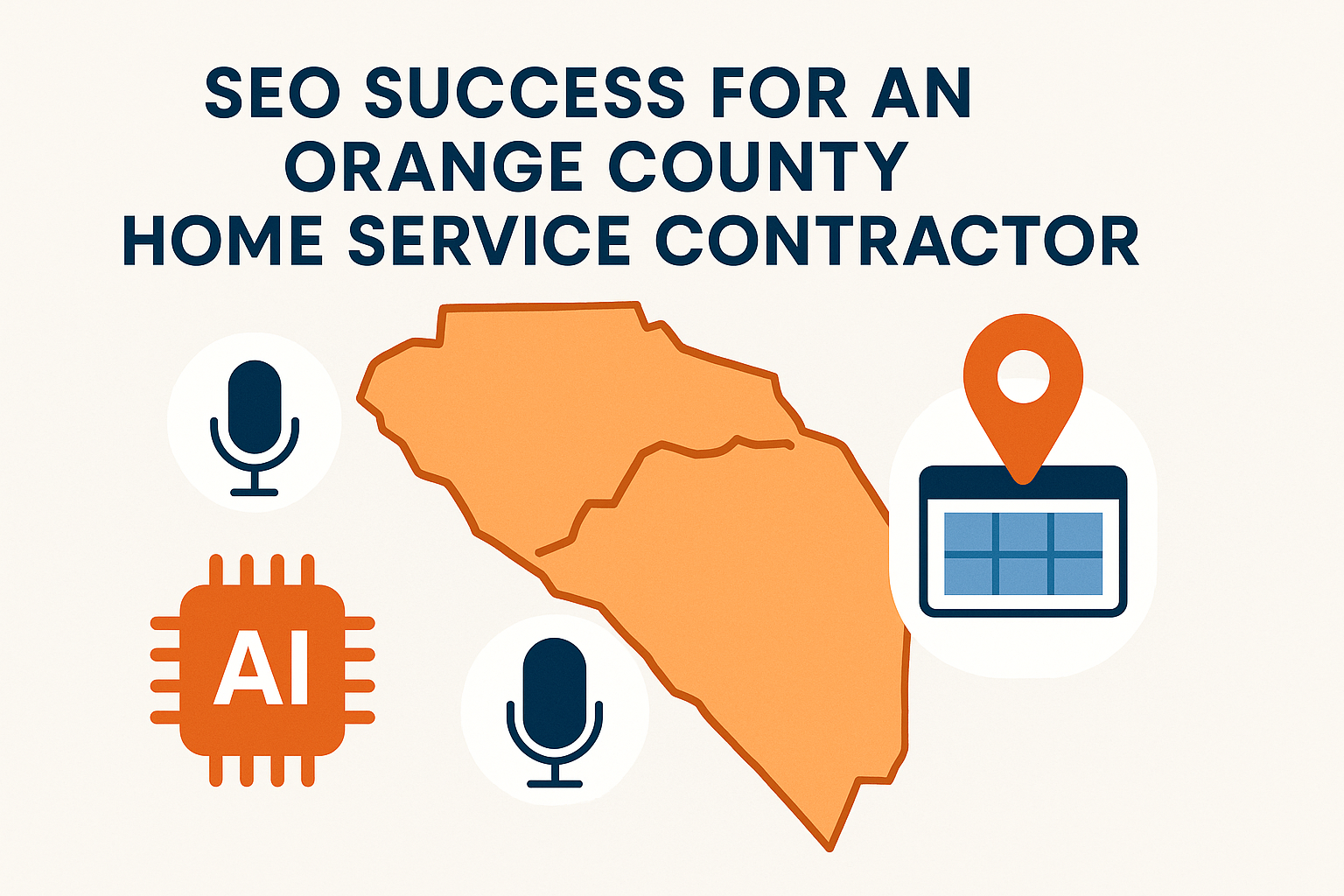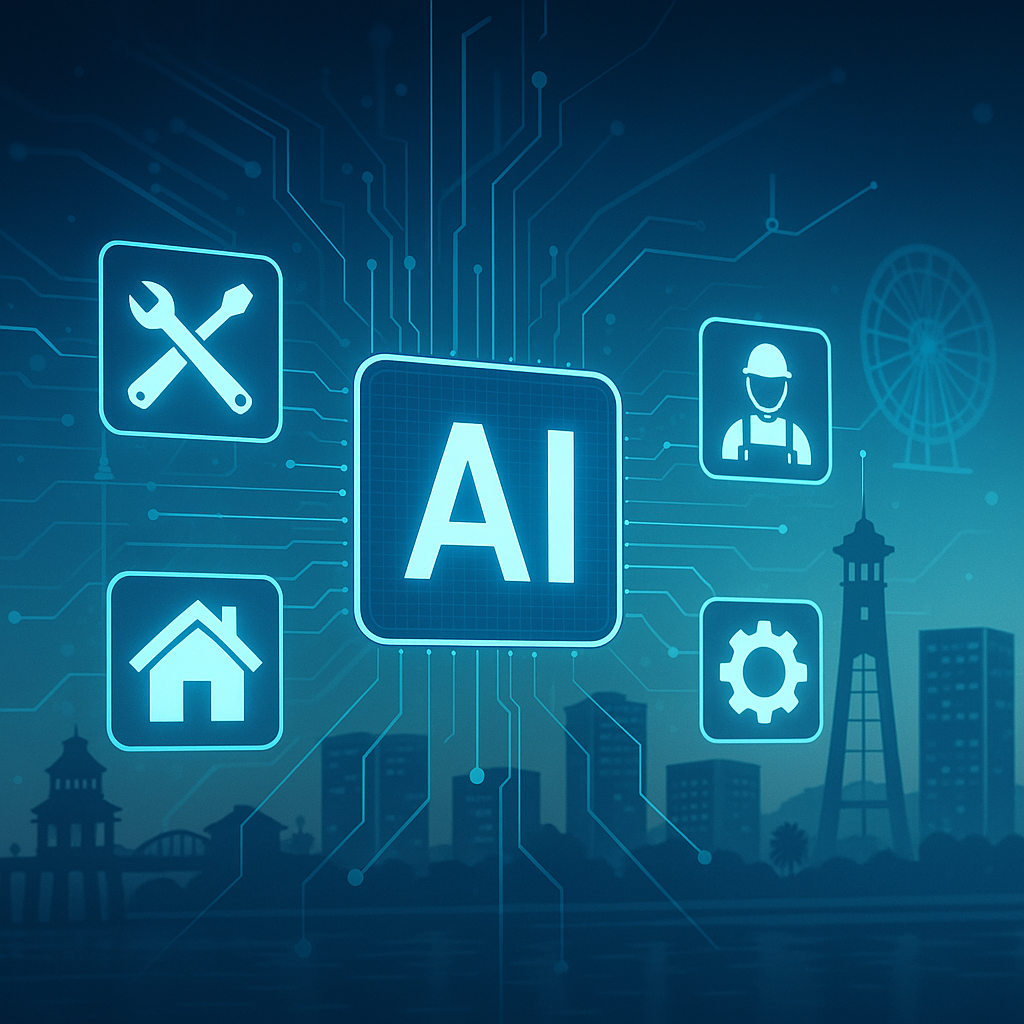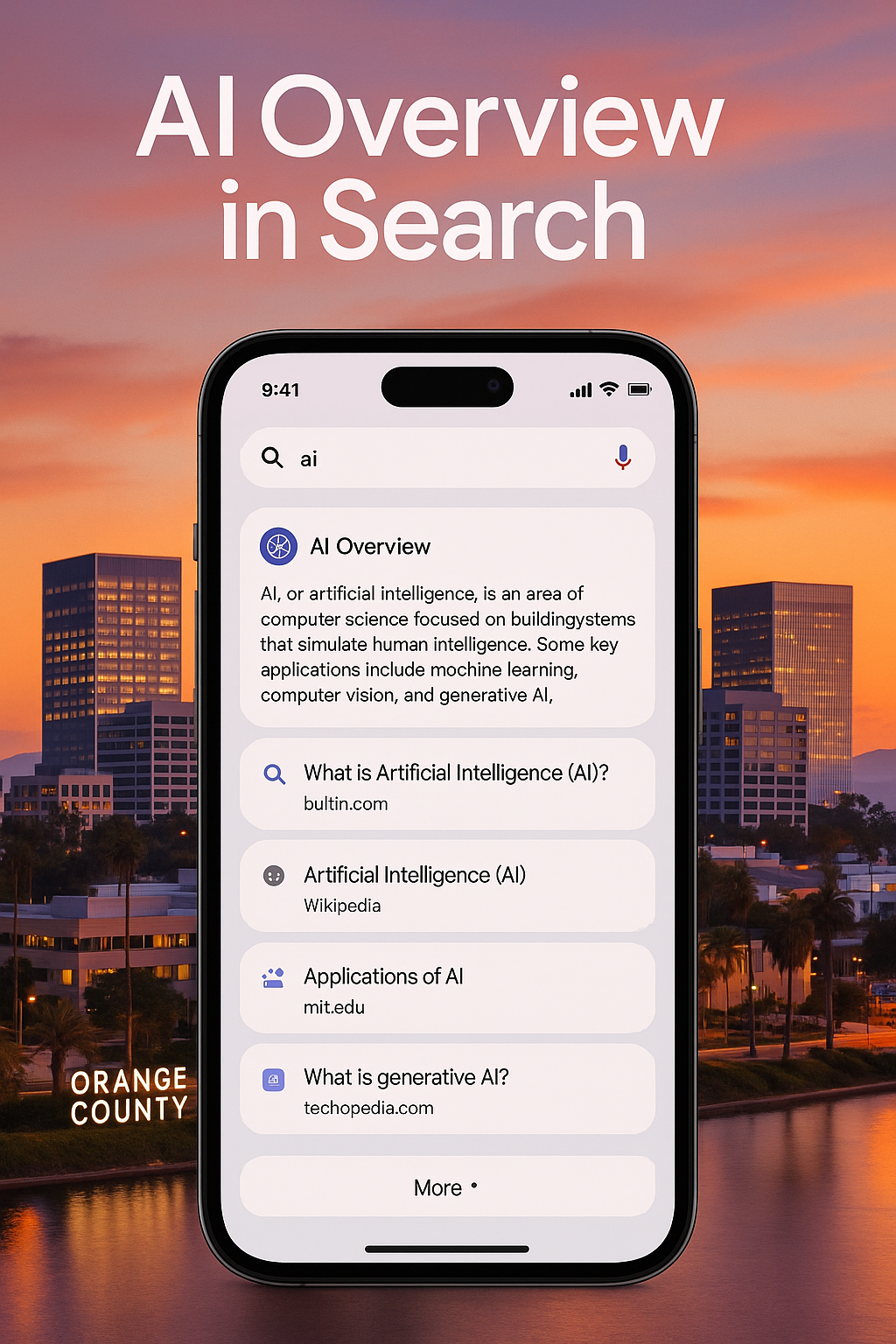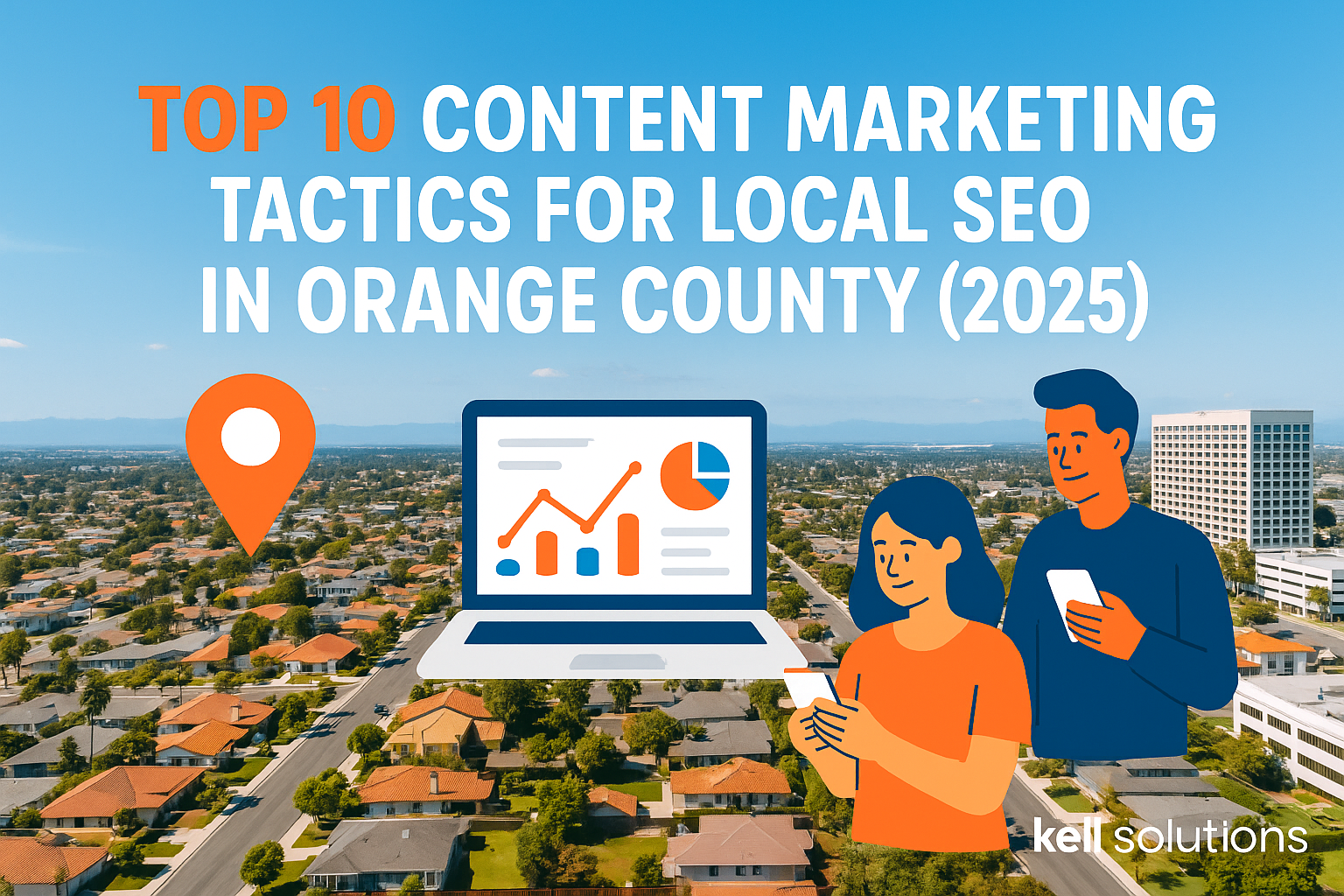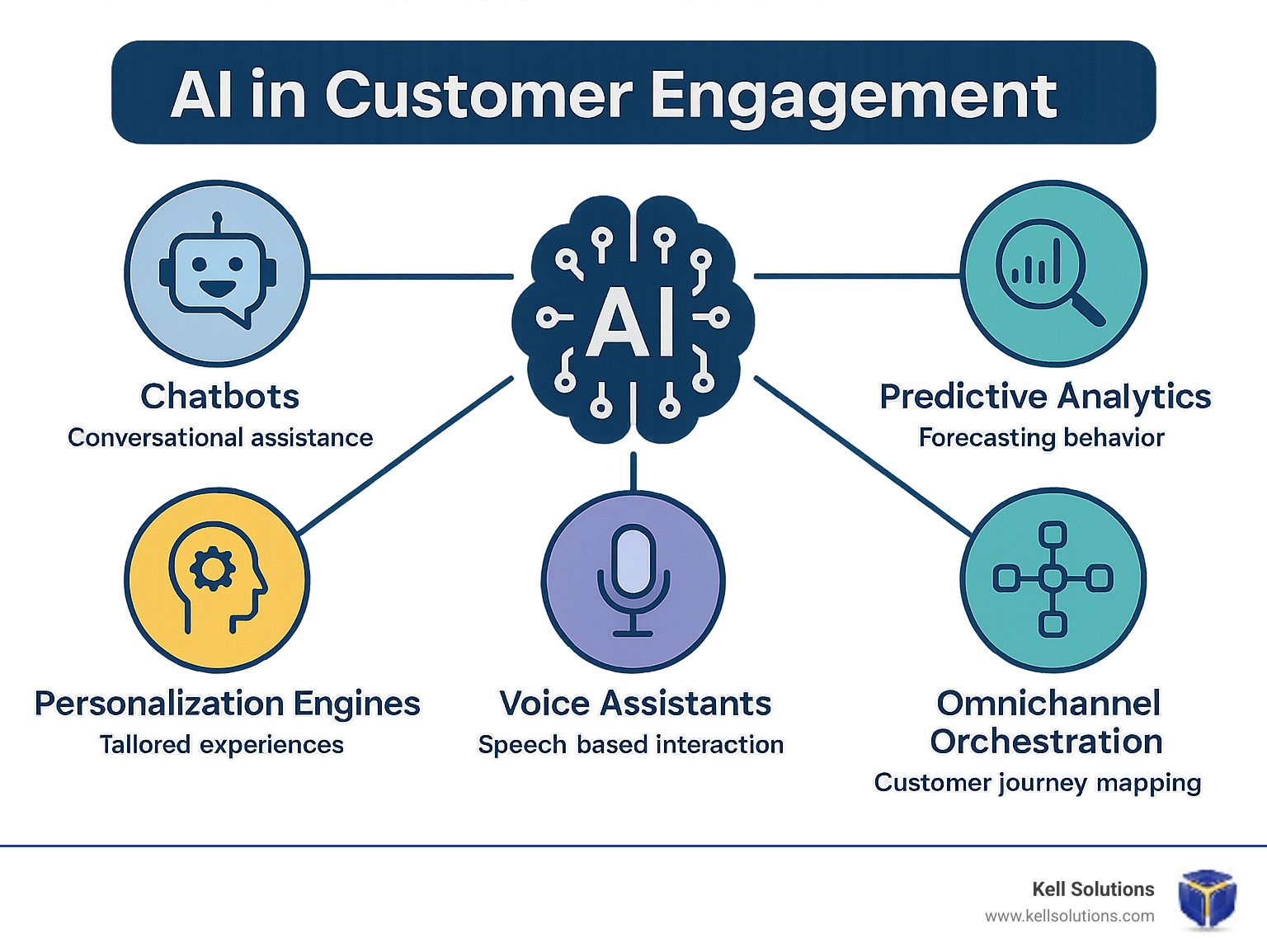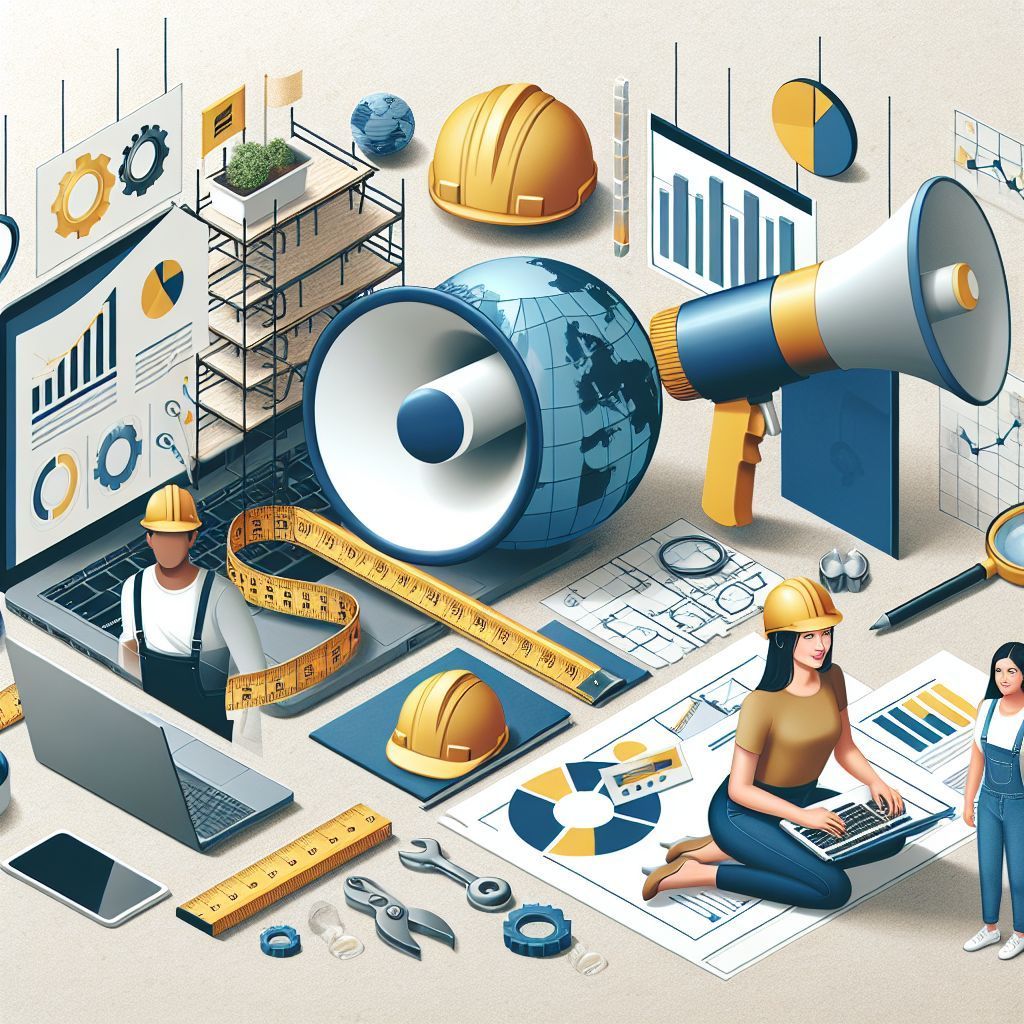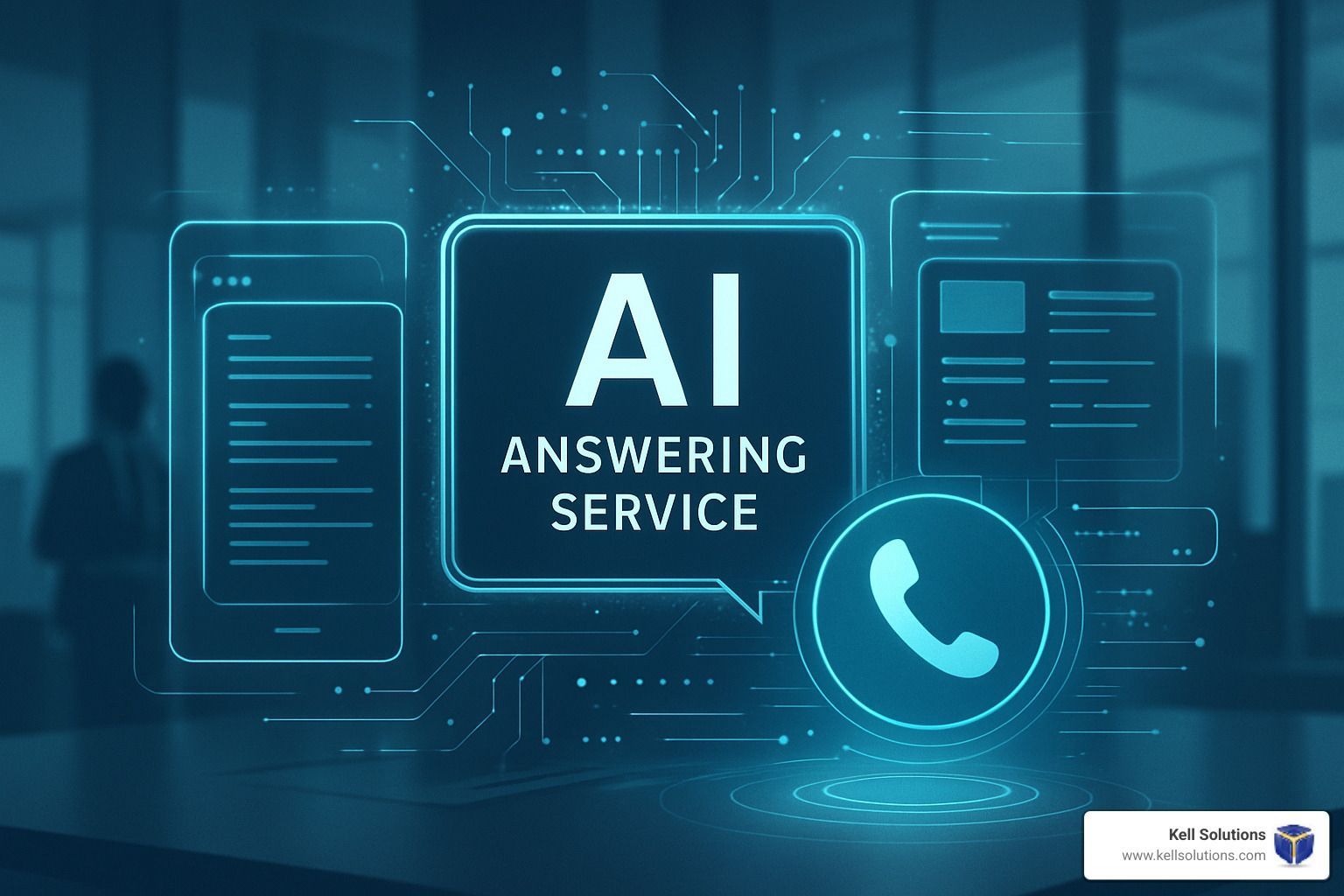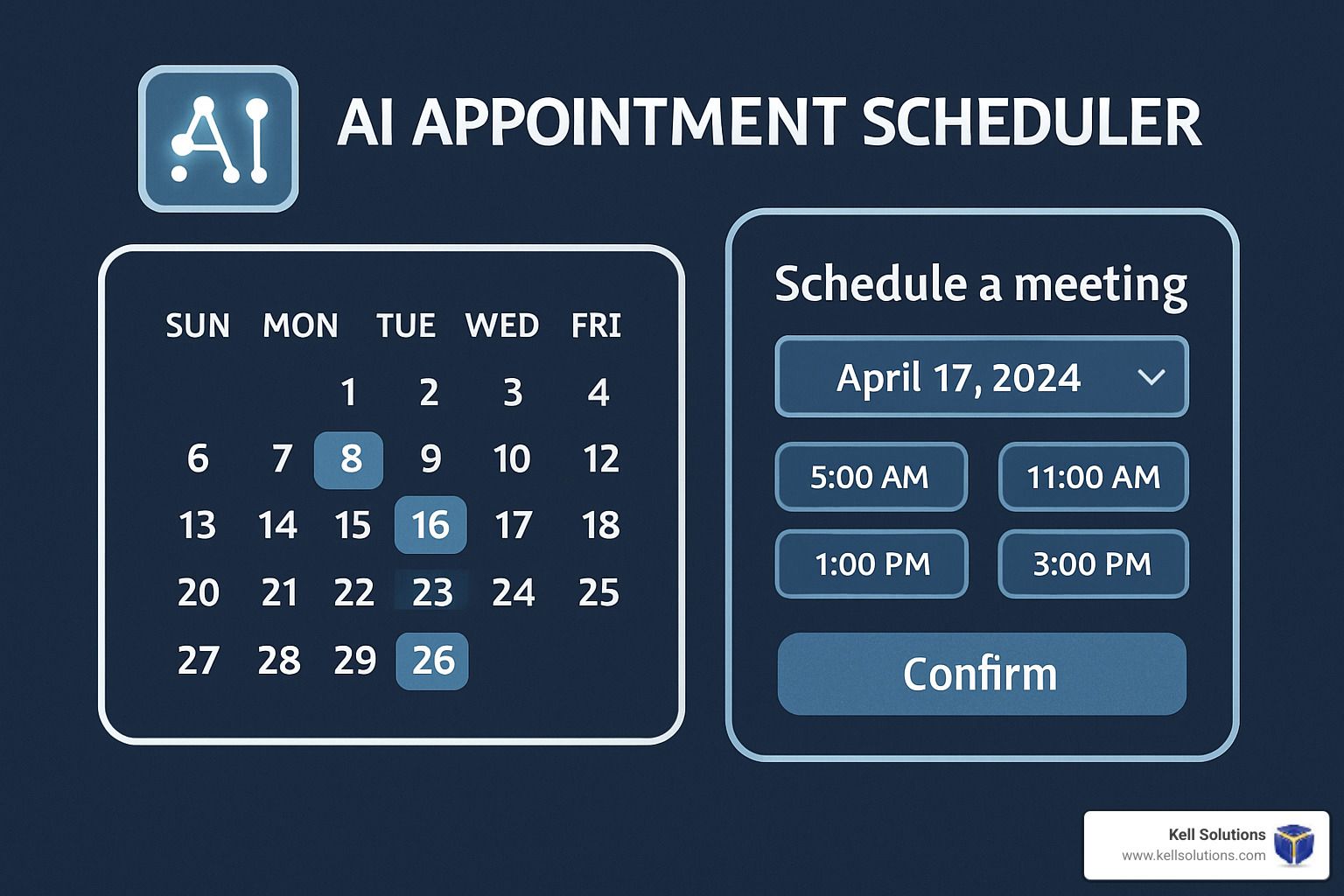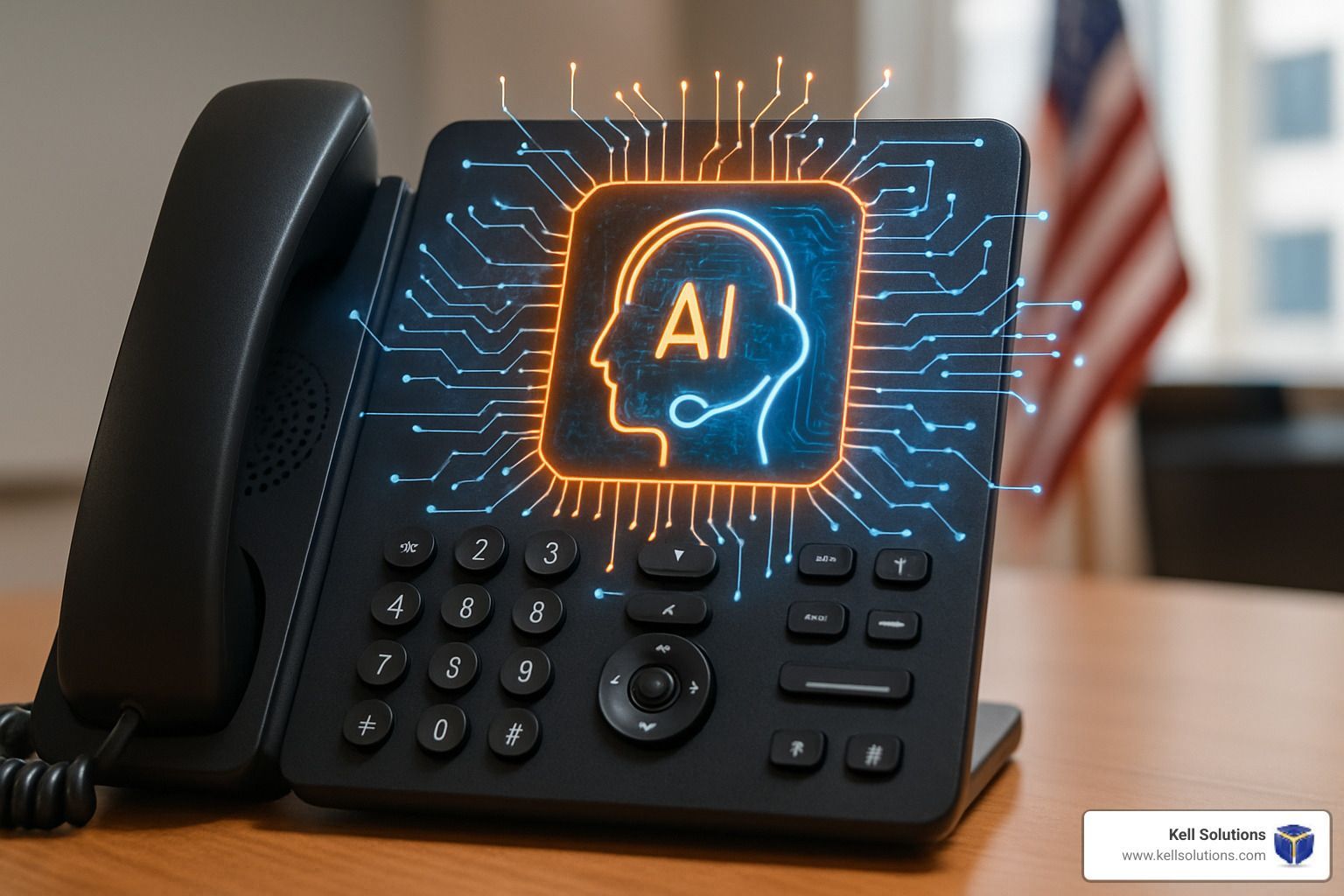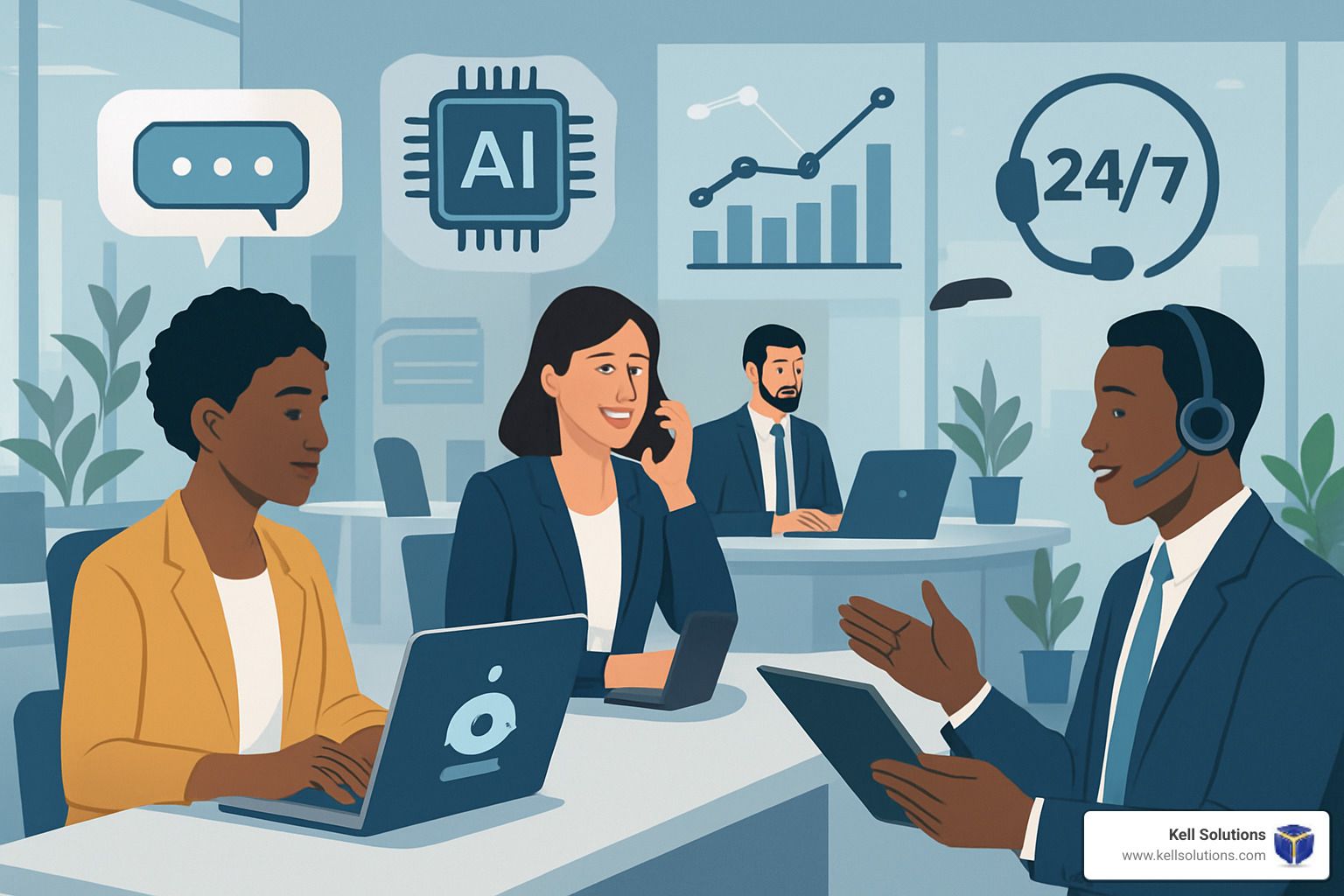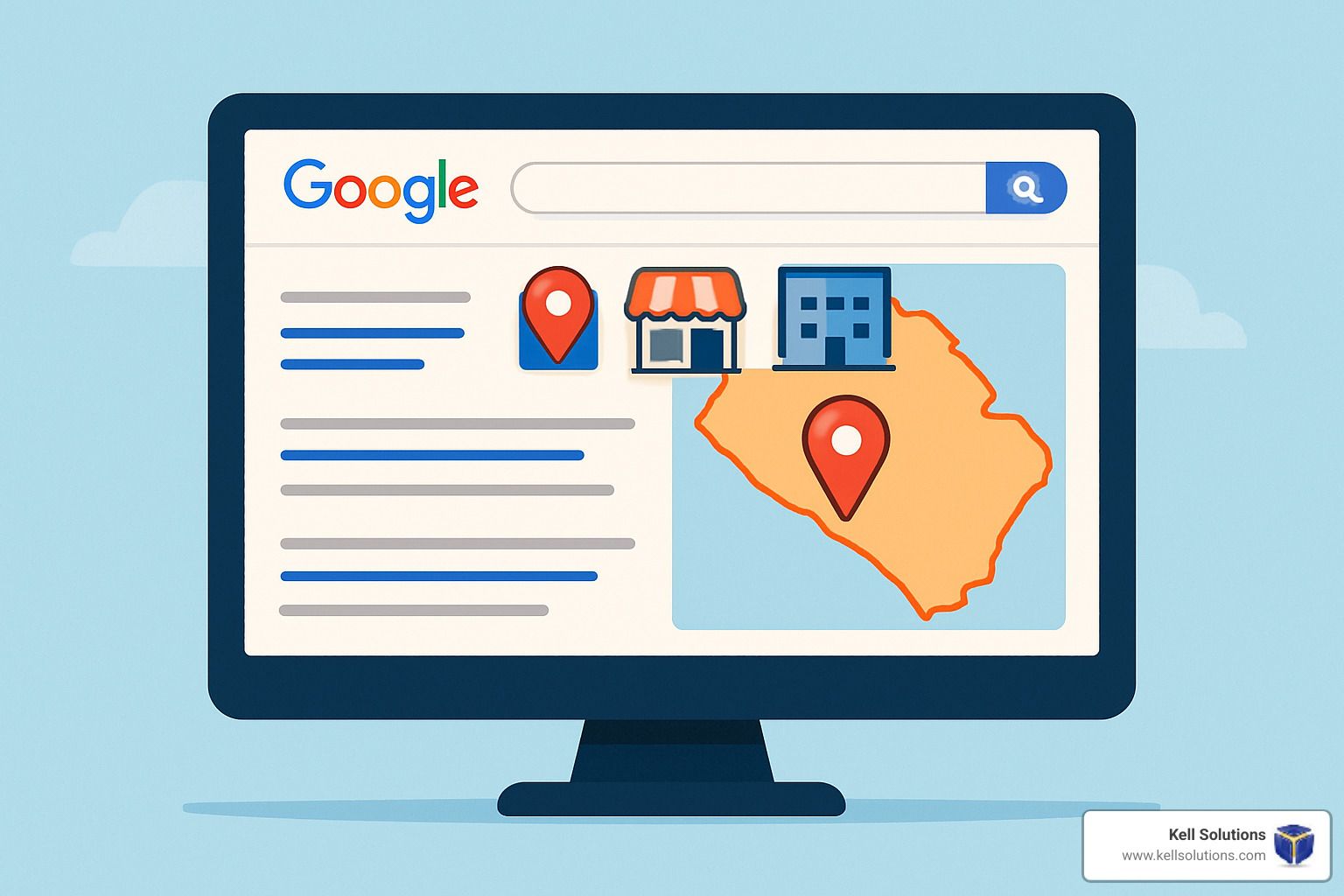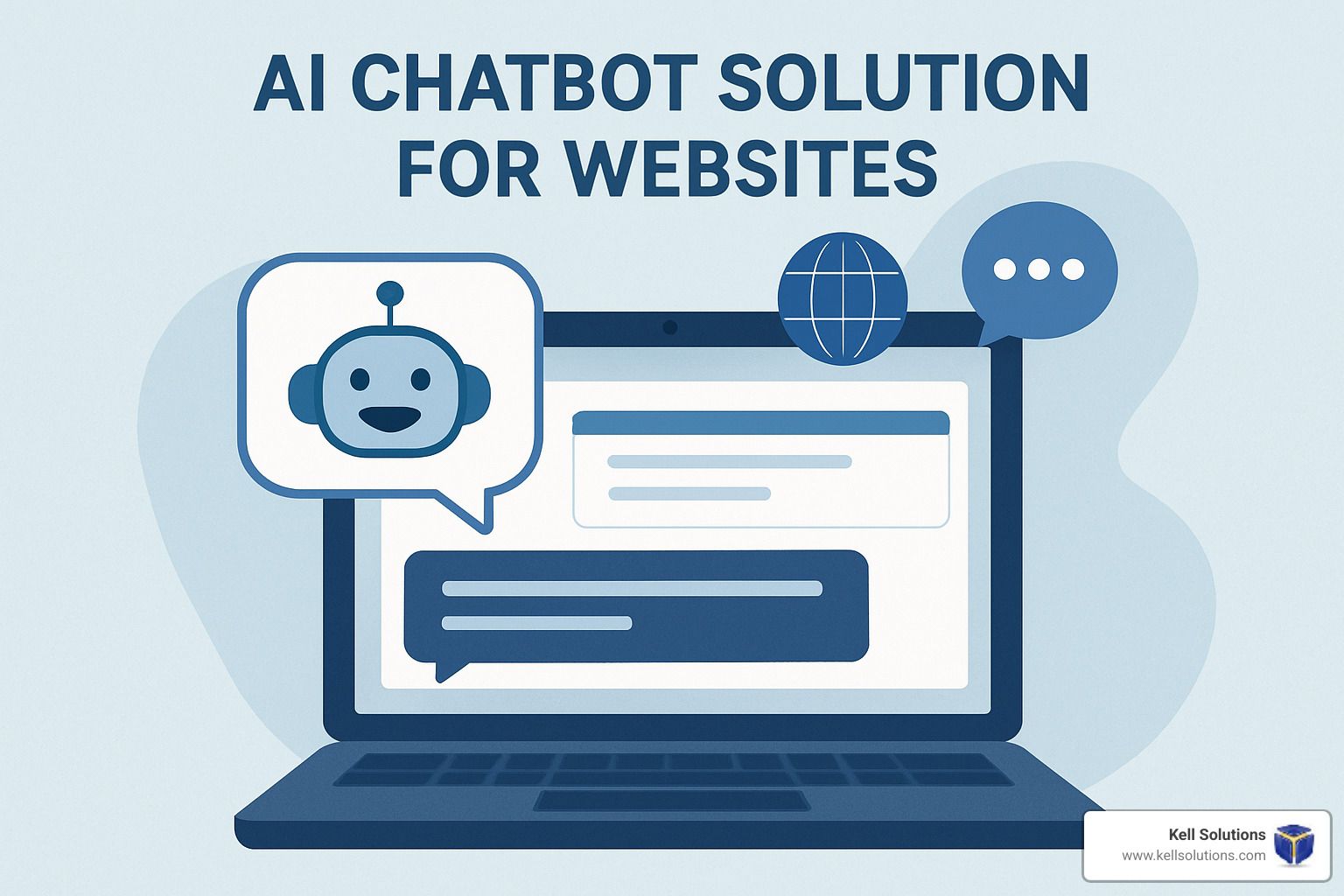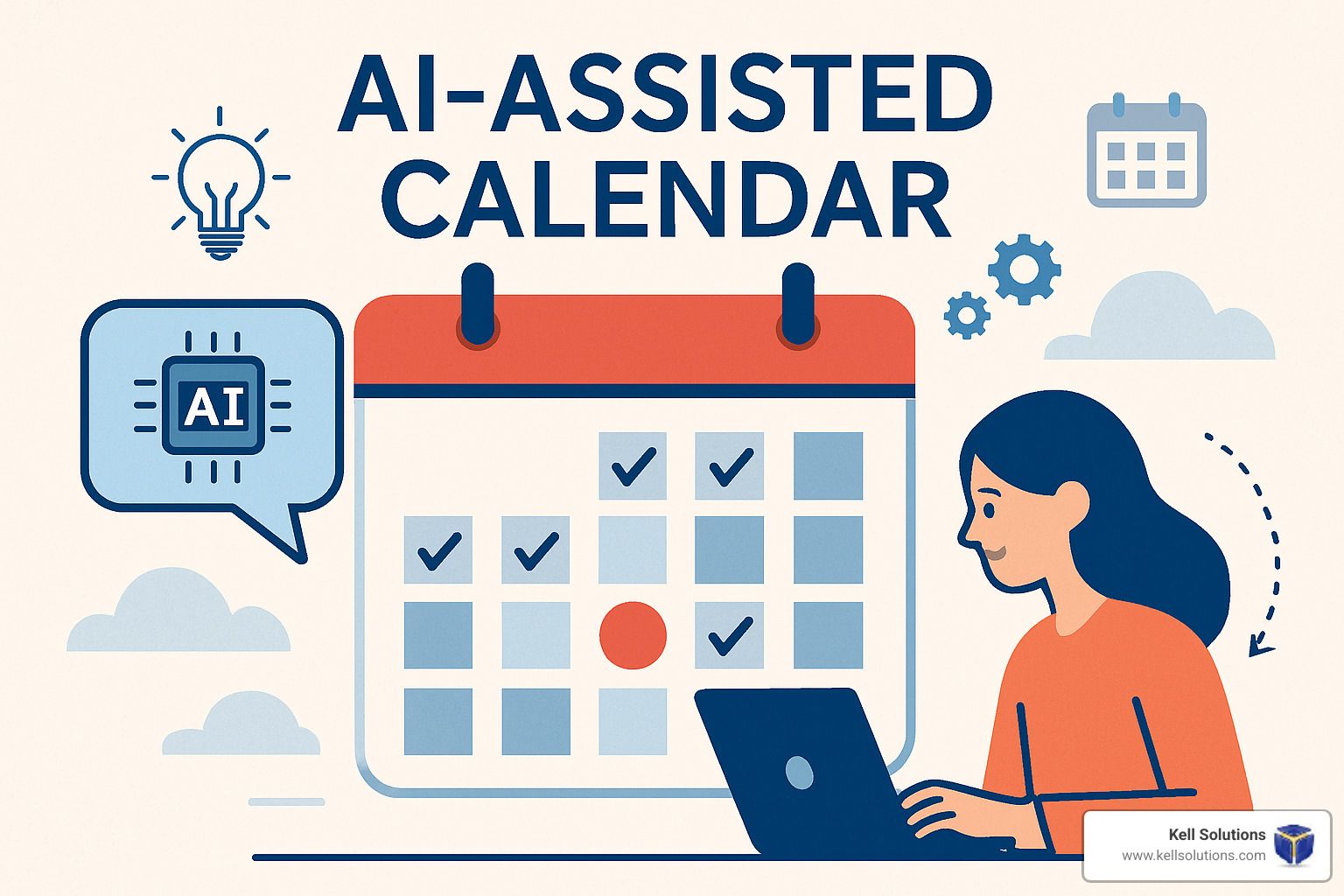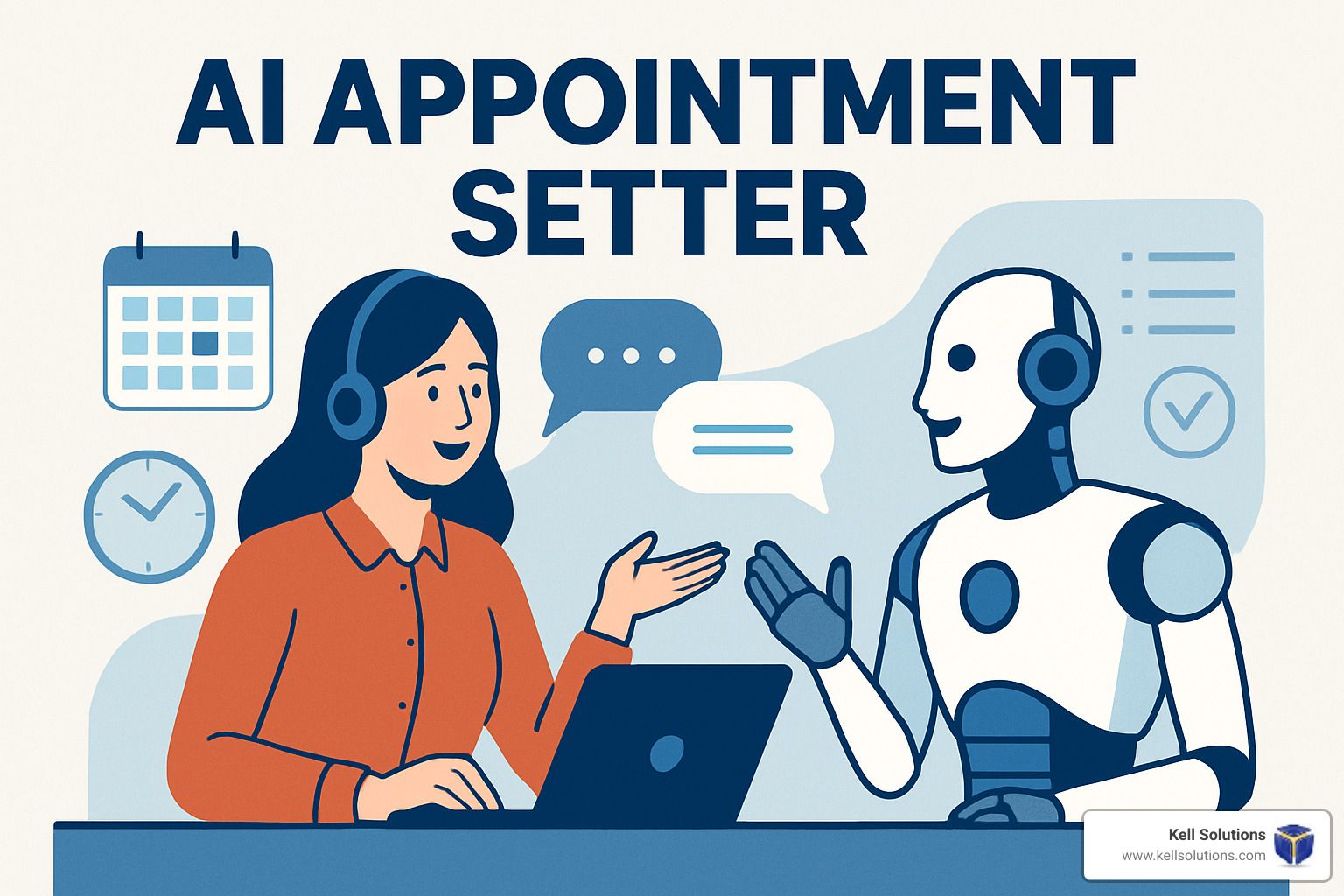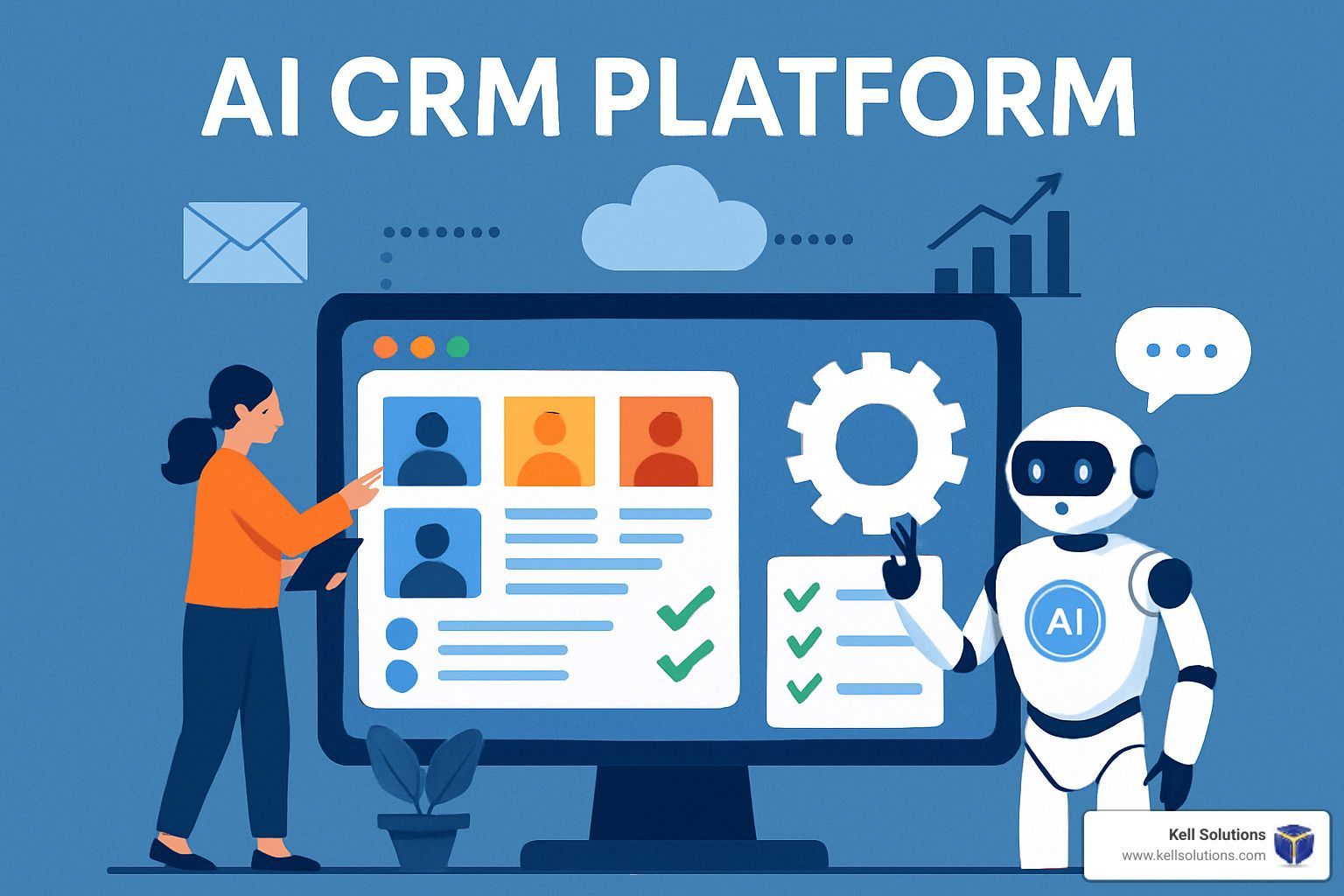AI Customer Service Guide for Small Business: Features, Benefits & Tips
Unlock the power of AI to transform your small business customer service—discover essential features, proven benefits, and expert tips for seamless implementation.

Key Takeaways
- AI customer service solutions can reduce operational costs by up to 30% while improving response times from hours to seconds for small businesses.
- Small businesses implementing AI chatbots report up to 22% increases in sales through 24/7 availability and consistent customer support.
- The most effective AI customer service solutions integrate seamlessly with existing business systems and can be implemented without extensive technical expertise.
- Balancing automated AI interactions with human touchpoints is crucial for maintaining the personal relationships that differentiate small businesses.
- Starting with a focused implementation addressing specific pain points yields better results than attempting to automate all customer service processes at once.
Small businesses face a pivotal challenge today: delivering exceptional customer service while managing limited resources in an increasingly demanding marketplace. With 67% of customers becoming frustrated when their issues aren't resolved instantly, the pressure to provide responsive support has never been higher. AI customer service technology has evolved to become both accessible and powerful for small businesses, offering enterprise-level capabilities without enterprise-level costs or complexity.
Today's AI-powered customer service solutions can transform how your small business connects with customers, from automating routine inquiries to providing personalized experiences at scale. For businesses looking to compete effectively while maintaining operational efficiency, AI customer service tools provide the strategic advantage needed to thrive in today's competitive landscape without sacrificing the personal touch that makes small businesses special.
Why Your Small Business Needs AI Customer Service Now
The customer service landscape has fundamentally changed. While just a few years ago customers might have accepted waiting 24 hours for an email response, today's consumers expect immediate assistance regardless of when they reach out. For small businesses operating with limited staff and resources, meeting these expectations can seem impossible without technology assistance.
AI customer service solutions bridge this gap by providing capabilities previously available only to large corporations with extensive support teams. Research shows businesses implementing AI for customer service experience a 20% increase in customer satisfaction scores while simultaneously reducing operational costs by up to 30%. These dual benefits—improved service quality and reduced expenses—create a compelling case for small business adoption.
What truly sets modern AI solutions apart is their accessibility. User-friendly interfaces, template-based setups, and subscription pricing models have eliminated the technical barriers and prohibitive costs that once kept this technology out of reach for smaller operations. Today's small business owner can implement sophisticated AI customer service with minimal technical expertise and reasonable investment.
Top AI Customer Service Features That Transform Small Business Support
Not all AI customer service solutions offer the same capabilities, and understanding which features deliver the most value for your specific business needs is crucial for successful implementation. The most impactful AI customer service technologies address specific pain points while complementing your existing operations rather than disrupting them.
AI Customer Service Impact by the Numbers
• 67% of customers prefer self-service over speaking with company representatives
• 40% reduction in average call handling time when AI assists human agents
• 35% of consumers want more companies to use chatbots
• 15% increase in customer retention rates with AI-enhanced support
• 64% of employees with AI assistance can spend most of their time solving complex problems
While the specific feature set you need will depend on your business model, industry, and customer base, several core capabilities have proven particularly valuable across virtually all small business implementations. These foundational features form the building blocks of an effective AI customer service strategy.
24/7 Availability Without Hiring Night Staff
One of the most immediate benefits of AI customer service is the ability to provide round-the-clock support without staffing multiple shifts. AI-powered chatbots and AI virtual assistants can engage with customers at any hour, answering questions, processing simple requests, and collecting information for human follow-up when necessary. This extended availability ensures that customers reaching out outside business hours still receive acknowledgment and assistance rather than silence until the next business day.
Instant Response to Common Questions
Customer patience has never been shorter, with studies showing that 82% of consumers expect an immediate response to sales or marketing questions. AI systems excel at providing instant answers to frequently asked questions about business hours, pricing, product specifications, shipping policies, and other routine inquiries that might otherwise consume staff time. By programming your AI with comprehensive knowledge of your most common customer questions, you can dramatically reduce response times while freeing human agents to handle more complex issues.
Personalized Customer Interactions at Scale
Modern AI systems can leverage customer data to deliver personalized interactions that make each customer feel valued and understood. By accessing purchase history, previous communications, and preference data, AI can tailor responses and recommendations to individual customers, creating the impression of dedicated personal service even when handling hundreds of simultaneous interactions. This capability is particularly valuable for small businesses where personal relationships have traditionally been a competitive advantage against larger competitors.
Seamless Handoff to Human Agents
The most effective AI customer service systems know their limitations and can smoothly transition complex conversations to human agents when necessary. This intelligent escalation capability ensures customers never feel trapped in an AI loop when their needs exceed automated capabilities. The best systems transfer not just the conversation but also the context, ensuring human agents can pick up exactly where the AI left off without forcing customers to repeat information.
Multi-Channel Support Management
Today's customers engage with businesses across multiple channels—website chat, social media, email, text messaging, and more. Advanced AI customer service tools can provide consistent support across all these touchpoints, maintaining conversation history and context as customers switch between channels. This omnichannel capability ensures customers receive consistent responses regardless of how they choose to reach your business, creating a cohesive experience that builds trust and satisfaction.
6 Ways AI Customer Service Cuts Costs While Improving Service for Small Businesses
The dual benefit of AI customer service for small businesses—simultaneously reducing operational expenses while enhancing service quality—makes it particularly valuable for resource-conscious small businesses. Understanding these specific cost-benefit mechanisms can help business owners properly evaluate and justify the investment in AI technology.
1. Reduced Staffing Requirements
AI systems can handle 40-80% of routine customer inquiries without human intervention, dramatically reducing the number of support staff needed to maintain high service levels. Rather than replacing existing staff, most small businesses redirect their customer service team to higher-value activities like relationship building and complex problem-solving while the AI handles routine questions. This staffing efficiency translates directly to lower operational costs while actually improving overall service capability.
2. Lower Training Expenses
Customer service training represents a significant investment, especially in businesses with high turnover. AI systems centralize knowledge and deliver consistent responses without requiring extensive training programs. When new products launch or policies change, updating the AI knowledge base requires a single update rather than training multiple team members. This consistency also eliminates the knowledge gaps that typically occur when experienced staff members leave.
3. Decreased Customer Churn
Customer acquisition costs typically run five to seven times higher than retention costs, making customer loyalty a critical factor in profitability. AI customer service contributes directly to retention by addressing the primary causes of customer defection: slow response times and inconsistent service experiences. Businesses implementing AI customer service report 15-25% reductions in customer churn rates, translating directly to improved lifetime customer value and reduced marketing costs.
4. Minimized Human Error
Even the best human agents occasionally provide incorrect information, especially when tired or handling unfamiliar situations. AI systems deliver consistent, accurate responses based on verified information in their knowledge base. This reliability reduces costly errors that can damage customer relationships or create operational problems. For businesses in regulated industries, this consistency also helps ensure compliance with disclosure requirements and service standards.
5. Increased First-Contact Resolution
Each time a customer issue requires multiple interactions to resolve, both operational costs and customer frustration increase. AI systems excel at gathering comprehensive information during initial contact and either resolving issues immediately or preparing complete case details for human follow-up. This efficiency reduces the total number of interactions needed to resolve customer issues, lowering support costs while improving satisfaction scores.
6. Better Resource Allocation
AI customer service allows small businesses to allocate their limited resources more strategically by handling routine tasks automatically while directing human attention to situations that truly benefit from personal intervention. This intelligent work distribution ensures your most valuable resource—your team's time and expertise—is invested where it creates the greatest value. The resulting efficiency gains often allow small businesses to expand service offerings without proportional increases in support costs.
Real Small Business Success Stories With AI Customer Service
The practical impact of AI customer service becomes clearest through the experiences of small businesses that have successfully implemented these solutions. These case studies demonstrate how businesses similar to yours have overcome specific challenges and achieved measurable results through thoughtful AI adoption.
Local Retailer Increases Sales by 22% With AI Chat
A boutique clothing retailer with three physical locations implemented an AI chatbot on their website primarily to answer inventory and store hours questions. Within three months, they discovered an unexpected benefit: the chatbot was influencing purchasing decisions by providing detailed product information and suggesting complementary items. Transaction data revealed that customers who engaged with the AI before purchasing spent 27% more on average than those who didn't.
The retailer enhanced this effect by programming the AI to offer personalized style advice based on previous purchases and browse behavior. By the six-month mark, overall sales had increased 22%, with the owner attributing much of this growth to the AI's ability to provide responsive, personalized service during hours when staff wasn't available to answer website inquiries.
Service Business Reduces Response Time From Hours to Seconds
A home services company specializing in emergency plumbing repairs implemented AI customer service primarily to manage their high volume of after-hours calls. Before implementation, customers calling outside business hours reached voicemail and typically waited 2-3 hours for a callback to schedule service. After deploying an AI phone system, customers received immediate responses, with the AI qualifying emergencies, collecting essential information, and even scheduling routine appointments directly into the company's booking system.
The results were dramatic: customer satisfaction scores increased by 35%, cancellations decreased by 48%, and technicians arrived at jobs with better advance information about the problems they would be addressing. Perhaps most significantly, the business was able to expand into two additional service territories without hiring additional office staff, as the AI efficiently managed the increased inquiry volume.
How to Choose the Right AI Customer Service Solution
With dozens of AI customer service platforms marketing to small businesses, selecting the right solution requires careful evaluation of your specific needs, technical capabilities, and growth objectives. The best choice depends less on which platform has the most features and more on which aligns most closely with your particular business requirements and constraints.
Begin by clearly defining what you want to accomplish with AI customer service. Are you primarily looking to extend service hours, reduce response times, handle higher inquiry volumes, or free up staff for more complex work? Different platforms excel in different areas, and your priorities should drive your selection process.
Also consider your implementation resources. Some platforms offer turnkey solutions requiring minimal setup but less customization, while others provide more powerful capabilities but demand greater configuration effort. Be realistic about your team's capacity to implement and manage the system you choose.
Balancing AI and Human Touch in Your Customer Service
The most successful AI customer service implementations don't aim to replace human interaction entirely—they strategically automate routine tasks while preserving human connection where it matters most. This balanced approach recognizes that while AI excels at speed, consistency, and handling high volumes, human agents bring empathy, creative problem-solving, and relationship-building skills that remain irreplaceable.
Small businesses actually have a distinct advantage in this balancing act. Unlike large corporations where customers often feel like anonymous tickets in a system, small businesses have built their reputations on personal relationships and community connections. By thoughtfully implementing AI to handle routine inquiries while freeing your team to focus on meaningful customer interactions, you can actually strengthen this competitive advantage rather than diluting it.
Human vs. AI: Strengths in Customer Service
AI Strengths: 24/7 availability, instant response times, perfect memory of customer history, consistency across interactions, simultaneous handling of multiple inquiries
Human Strengths: Emotional intelligence, complex problem solving, creative solutions, relationship building, judgment in unusual situations, genuine empathy
The key to success lies not in choosing between AI and human service but in designing thoughtful pathways between them that leverage the strengths of each. When implemented correctly, customers experience a seamless service environment where routine needs are addressed instantly while more complex or sensitive situations receive the human attention they require.
When to Use AI vs. Human Agents
Effective resource allocation starts with understanding which types of customer interactions benefit most from automation versus human handling. AI typically excels at handling high-volume, straightforward inquiries with clear parameters and defined solutions. For example, order status checks, appointment scheduling, product specifications, and basic troubleshooting follow predictable patterns that AI can manage efficiently. These interactions benefit from immediate response times while rarely requiring the emotional intelligence or creative problem-solving that humans provide.
Creating Seamless Transitions Between AI and Humans
The most frustrating customer experiences often occur not with AI or human agents individually, but during poor transitions between them. When designing your customer service workflow, pay special attention to these handoff points. Effective transitions should transfer not just the conversation but the complete context, including customer history, the specific issue being addressed, and any information already collected. This context preservation ensures customers don't need to repeat themselves, maintaining the feeling of a single, coherent conversation even as it moves between automated and human support.
Common AI Customer Service Mistakes and How to Avoid Them
As with any powerful business tool, AI customer service delivers the greatest value when implemented with awareness of common pitfalls. Many small businesses encounter similar challenges when first adopting AI for customer support. Understanding these patterns can help you avoid costly missteps and accelerate your path to successful implementation.
Overreliance on Automation
Perhaps the most common mistake is attempting to automate too much too quickly. This often stems from an understandable desire to maximize return on investment by applying the new technology as broadly as possible. However, forcing AI to handle situations beyond its capabilities creates frustrating customer experiences and can damage trust in your business.
Instead, start with a focused implementation addressing your most common, straightforward customer inquiries. Measure success carefully, gather feedback, and gradually expand AI capabilities as you confirm positive outcomes. This phased approach allows both your team and your customers to adapt comfortably while ensuring each automation step creates genuine value.
Poor Knowledge Base Management
AI customer service systems are only as good as the information they're trained on. Many implementation failures trace back to inadequate attention to the knowledge base that powers AI responses. Without regular updates, verification of accuracy, and expansion to cover emerging questions, even sophisticated AI systems will deliver disappointing results.
Ignoring Customer Feedback on AI Interactions
- Failing to monitor customer satisfaction with AI interactions
- Not establishing clear metrics for AI performance evaluation
- Missing opportunities to identify and fix problematic conversation flows
- Overlooking patterns in when customers abandon AI interactions
- Not gathering direct feedback about the AI experience
Customer feedback provides the most valuable guidance for improving your AI implementation. Establish consistent methods for measuring satisfaction with AI interactions, analyzing abandonment points, and collecting direct customer input about their experiences. Many businesses discover their assumptions about what customers want to handle via AI differ significantly from actual customer preferences.
Create multiple feedback channels, including post-interaction surveys, periodic customer interviews, and analysis of conversation transcripts. Pay particular attention to situations where customers express frustration or repeatedly request human assistance, as these highlight opportunities for improvement.
Remember that AI systems improve through ongoing refinement based on actual usage patterns. The most successful implementations treat the initial launch as just the beginning of a continuous improvement process driven by real-world interaction data and customer feedback.
Future-Proof Your Small Business With AI Customer Service
The customer service landscape continues to evolve rapidly, with advancements in AI technology opening new possibilities for small business applications. Staying informed about emerging capabilities helps ensure your business remains competitive as customer expectations continue to rise. Voice-based AI assistants, visual recognition systems, predictive service models, and emotionally intelligent AI represent just a few of the innovations reshaping customer support possibilities.
Beyond specific technologies, future-proofing your business means cultivating an adaptive mindset that views customer service as an evolving discipline rather than a fixed process. The most resilient small businesses maintain a dual focus: optimizing current operations while continuously exploring how emerging capabilities might further enhance the customer experience. By balancing immediate needs with forward-looking experimentation, you position your business to thrive amid changing customer expectations and competitive pressures.
Frequently Asked Questions
As you consider implementing AI customer service for your small business, you likely have specific questions about how these solutions would work in your particular situation. The following answers address the most common concerns small business owners raise when evaluating AI customer service options.
These questions reflect real discussions with hundreds of small business owners who have successfully implemented AI customer service. While your specific circumstances may present unique considerations, these answers provide a foundation for understanding how AI might fit within your customer service strategy.
For more detailed guidance tailored to your specific business needs, many AI customer service providers offer consultation services to help you evaluate options and develop an implementation plan aligned with your goals and resources.
How much does AI customer service typically cost for a small business?
AI customer service costs vary widely based on capabilities, volume requirements, and integration needs, but most small businesses can implement effective solutions for $50-500 monthly. Entry-level chatbots with template-based setups typically start around $30-100 per month, while more sophisticated systems with custom training and multiple channel support range from $200-1000 monthly.
Many providers offer tiered pricing based on conversation volume, allowing you to start small and scale as needed without large upfront investments.
Can AI customer service handle complex customer problems?
Today's AI excels at addressing common, well-defined inquiries but has limitations with highly complex or emotionally nuanced situations. The best approach is typically a hybrid model where AI handles routine matters while seamlessly transferring complex issues to human agents. This combination provides immediate response for straightforward questions while ensuring complex problems receive appropriate human attention.
As natural language processing technology continues advancing, AI capabilities for handling moderately complex situations improve continuously. However, human judgment, empathy, and creative problem-solving remain essential for your most challenging customer scenarios.
How long does it take to implement AI customer service?
Implementation timelines range from a few days for template-based solutions to several weeks for custom-trained systems. Basic chatbots using pre-built templates can be operational within 2-3 days, while more sophisticated implementations requiring custom knowledge base development, integration with existing systems, and extensive training may take 4-8 weeks to fully deploy.
Most small businesses find success with a phased approach, starting with a focused implementation addressing their most common customer inquiries and gradually expanding capabilities as they gain experience with the technology. This approach typically yields initial results within 1-2 weeks while building toward more comprehensive capabilities over 2-3 months.
- Template-based chatbot: 2-3 days
- Custom knowledge base development: 1-3 weeks
- Integration with existing systems: 1-2 weeks
- Testing and refinement: 1-2 weeks
- Staff training and process adjustment: 1 week
The investment in proper setup pays dividends in system effectiveness, as AI solutions deliver the greatest value when thoroughly trained on your specific business information and customer needs.
Will customers know they're talking to an AI?
Transparency about AI usage has become a best practice in customer service. While some businesses initially attempted to disguise their AI as human agents, research shows customers generally accept and even prefer AI for certain interactions—provided they're told upfront and can easily reach a human when needed. Modern implementations typically identify themselves as AI assistants at the beginning of interactions while emphasizing their connection to your business, such as "Hi, I'm Kell Web Solutions's virtual assistant, here to help you 24/7."
What types of businesses benefit most from AI customer service?
While businesses in nearly every industry can benefit from AI customer service, those experiencing high volumes of similar inquiries typically see the most immediate returns. Retail, e-commerce, hospitality, professional services, healthcare, financial services, and SaaS businesses have been particularly successful early adopters. The common factor among high-benefit implementations isn't industry but rather the presence of routine, repeatable customer inquiries that previously consumed significant staff time.
Businesses with seasonal fluctuations in demand also benefit significantly from AI's scalability, as the technology can seamlessly handle volume spikes without the staffing challenges these fluctuations typically create. Similarly, businesses offering products or services with complex features or specifications find value in AI's ability to instantly provide accurate, detailed information that might otherwise require extensive staff training.
Local service businesses like restaurants, salons, and repair services often see excellent results from even simple AI implementations focusing on hours, location, booking, and basic service information—areas that frequently generate high call volumes that interrupt staff during busy periods.
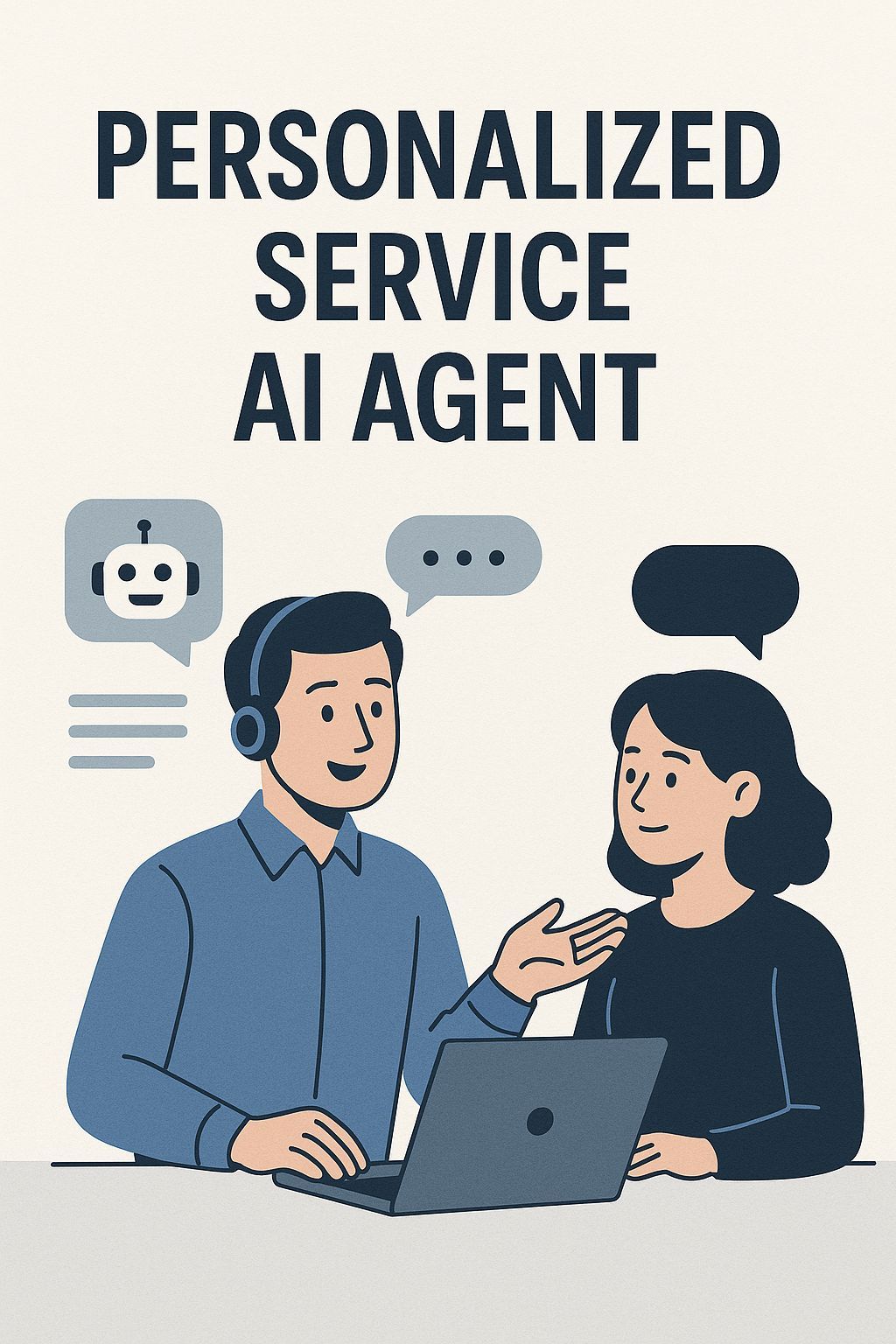

Orange County HVAC Google AI Overview Domination: 7 Proven Strategies to Capture Featured AI Results




